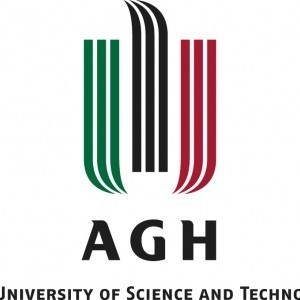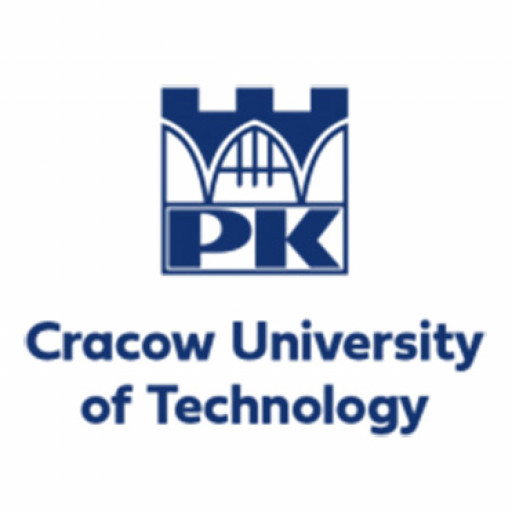The Chemical Technology program with a specialization in Composites and Nanomaterials at Poznan University of Technology is designed to prepare students for innovative careers in the field of advanced materials science. This unique course offers a comprehensive curriculum that combines fundamental chemical engineering principles with specialized knowledge in the development, processing, and application of composite materials and nanomaterials. Students will gain both theoretical insights and practical skills essential for addressing contemporary challenges in industries such as aerospace, automotive, electronics, healthcare, and environmental engineering. The program emphasizes modern techniques in nanotechnology, materials characterization, and the manufacturing processes involved in producing high-performance composites and nanostructured materials. Throughout their studies, students will engage in laboratory work, research projects, and internships that foster hands-on experience and innovation. The curriculum covers areas including polymer and ceramic composites, carbon nanotubes, nanostructured thin films, and functional nanomaterials, integrating knowledge across chemistry, physics, and engineering disciplines. Graduates of this program will be well-equipped to contribute to research and development teams, quality control, and production departments in leading industries. They will also have the foundational knowledge necessary for pursuing postgraduate studies or careers in academia. The university’s state-of-the-art laboratories and collaboration with industry partners ensure that students receive a high-quality education that aligns with current technological advancements and market demands. By participating in this program, students will develop critical thinking, problem-solving, and innovative skills vital for advancing sustainable and smart material solutions worldwide.
The Chemical Technology program with specialization in Composites and Nanomaterials at Poznan University of Technology offers a comprehensive curriculum designed to prepare students for advanced careers in the development, production, and application of innovative materials. The program emphasizes cutting-edge technologies in the synthesis, processing, and characterization of composite materials and nanomaterials, providing students with both theoretical knowledge and practical skills essential for the modern materials science industry.
Students will explore a wide range of topics, including polymer and ceramic composites, nanostructured materials, and their various applications in industries such as aerospace, automotive, electronics, and healthcare. The curriculum covers fundamental chemical engineering principles, materials chemistry, nanotechnology, and the physical properties that define the behavior of advanced materials. Specialized courses focus on the fabrication techniques and surface modification methods used to tailor material properties for specific needs.
Laboratory work and project-based assignments are integral parts of the program, enabling students to gain hands-on experience in material synthesis, characterization techniques such as electron microscopy, spectroscopy, and mechanical testing. The program also emphasizes sustainable and environmentally friendly practices in material development, aligning with contemporary demands for green chemistry and eco-efficient manufacturing processes.
Throughout the course of study, students will develop skills in problem-solving, innovation, and technical communication, preparing them to undertake research projects or pursue a career in industry. The program collaborates with industry partners and research institutions, providing opportunities for internships and collaborative projects that enhance learning and facilitate professional networking.
Upon graduation, students will be equipped with the knowledge and practical abilities to contribute to the advancement of composite and nanomaterial technologies, addressing global challenges through the development of innovative materials with high performance and sustainability. The program aims to foster a new generation of materials scientists and chemical engineers capable of making significant contributions to scientific research, technological development, and industrial innovation in the field of composites and nanomaterials.
English language – level B2 (Common European Framework),
Bachelor of Science degree (or equivalent)
The financing of the Chemical Technology program with a specialization in Composites and Nanomaterials at Poznan University of Technology is structured to support both domestic and international students through a variety of funding opportunities. The university offers several forms of financial assistance, including government scholarships, university grants, and external funding options. Polish citizens and residents can benefit from national scholarship schemes, which provide financial support based on academic achievement, social criteria, or financial need. Additionally, there are tuition fee discounts and scholarships awarded to outstanding students, which help to reduce the financial barriers to higher education.
International students enrolling in the program can access support through the Erasmus+ mobility program, which offers funding for study abroad periods and internships in partner countries, facilitating international experience and cross-cultural academic exchange. Furthermore, the university collaborates with various industry partners to establish industrial internships and research projects that sometimes include stipends or financial incentives for students. The university's financial aid programs are designed to ensure that qualified students can pursue their studies regardless of their financial background.
Students are also encouraged to seek external funding sources such as scholarships from governmental bodies, international organizations, and industry sponsors that support scientific development in fields related to composites and nanomaterials. The university provides information and assistance on applying for these grants and scholarships, aiming to increase accessibility to quality education in the field of chemical technology. The entire financing structure emphasizes inclusivity and support for excellence, ensuring that talented students can focus on their academic and research pursuits without undue financial concern.
The Chemical Technology program with a specialization in Composites and Nanomaterials at Poznan University of Technology offers students a comprehensive education in modern chemical processing techniques and materials engineering. This program is designed to equip students with advanced knowledge and practical skills necessary for developing, analyzing, and manufacturing composite materials and nanomaterials, which are critical components in industries such as aerospace, automotive, electronics, and construction. The curriculum encompasses core subjects such as chemical engineering principles, materials science, nanotechnology, polymer chemistry, surface modification, and processing techniques. Students gain hands-on experience through laboratories, projects, and internships, emphasizing innovation and research capabilities in the field of composites and nanomaterials. The program also focuses on sustainable practices and environmental considerations in material development. Graduates of this specialization are prepared for careers in R&D departments, manufacturing industries, or for further academic pursuits, contributing to advancements in high-performance, lightweight, and multifunctional materials. Collaboration with industry partners and participation in international research projects ensure students are exposed to the latest technological trends and challenges. The program maintains a close connection with scientific research centers and laboratories at the university, fostering a conducive environment for innovation. In addition to technical competencies, students develop analytical, problem-solving, and teamwork skills vital for professional success. The program duration is typically five years, culminating in a Master’s degree, preparing students for leadership roles in the evolving field of chemical technology focused on composites and nanomaterials.








